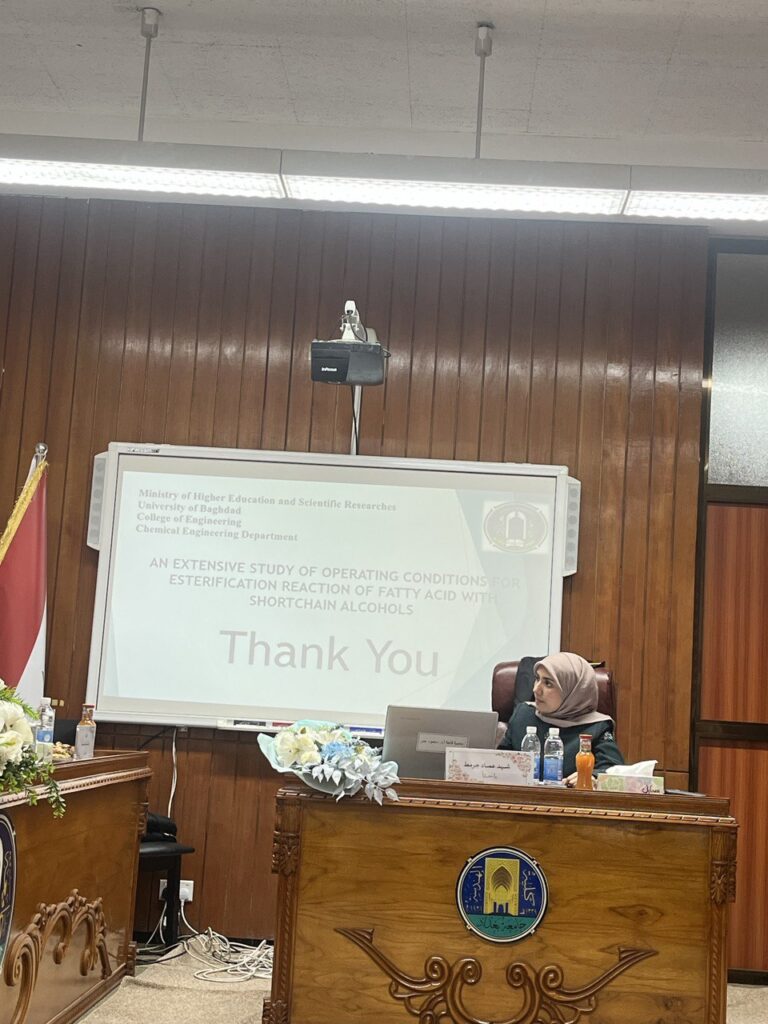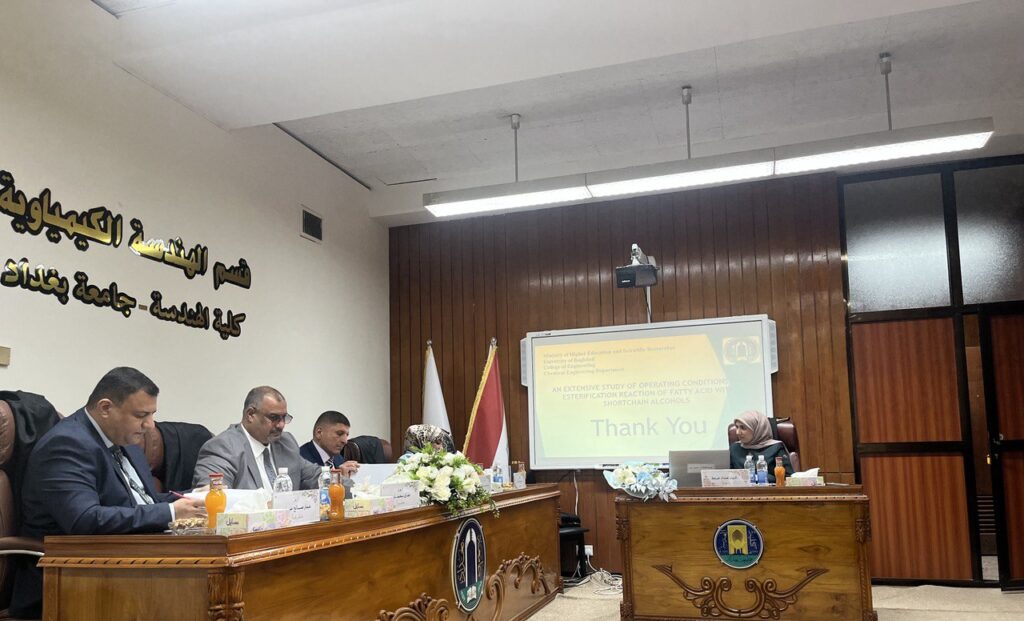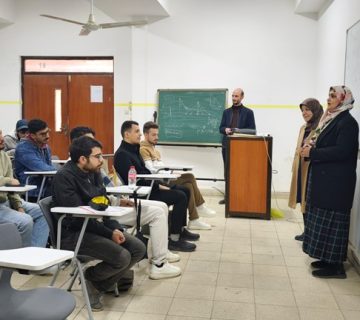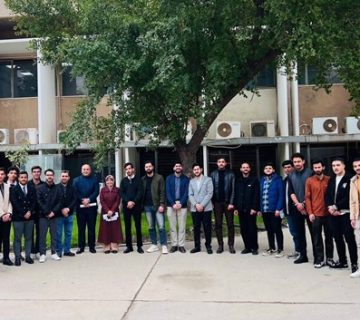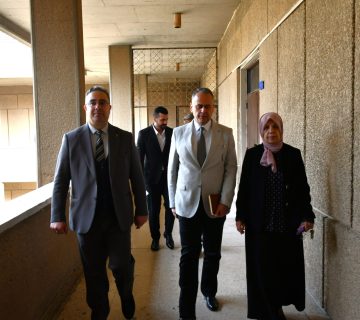The Chemical Engineering Department at the College of Engineering, University of Baghdad, held an MSc thesis examination titled: “ An Extensive Study of Operating Conditions for Esterification Reaction of Fatty Acid with Short-chain Alcohol “
By the student Shahd Imad Jurmot and supervised by Prof. Dr. Ammar Salih Abbas. The examination committee consisted of Prof. Dr. Zaidon Mohsin Shakoor Chairman and the membership of Assist. Prof. Dr. Rana Thabit Abed and Assist. Prof. Dr. Tariq Mohammed. After conducting the public discussion and listening to the student’s defense, the thesis was accepted. The thesis was summarized as follows: The present study focused on investigating the effects of the main properties of a zeolite on the conversion of oleic acid during esterification Different types of zeolites were used in the study (two types of 13X and Mordenite). A dealumination treatment has been applied to one type of 13X zeolite with citric acid. Different methods were used to characterize the dealuminated samples of catalysts like XRD, XRF, BET, SEM, and EDAX. The performance of oleic acid esterification with ethyl alcohol was studied by conducting with the different types of zeolites and at conditions of the temperature range from 40 to 70 °C, the molar ratio of alcohol/oleic acid was 6:1 and catalyst dose 5% and reaction time up to 120 minutes. The XRD inception showed that the dealumination treatment did not destroy the crystal of 13X type1 zeolite. The XRF showed that the dealumination treatment change the Si/Al ratio and sodium content. Also, BET results showed the surface area and pore volumes for 13X type1 zeolite were changed. A pseudo-homogenous reversible model was solved mathematically depending on the kinetics data. The rate constants of reaction, frequency factors, and activation energies were calculated for the different types of zeolites for both the forward reaction and the reverse reaction was found. The observed activation energies for the different types of zeolites were slightly small values (11359.4, 6006.0, 7399.1, 9972.6, 3366.7 J/mol). A thermodynamic study of the activated complex for the different types of zeolites was studied for forward and revers reactions by applying the theory of an intermediate complex that formed disintegrates to a product. Eyring bi-molecular collision concept was used to determine the change in enthalpy (ΔH*) and the change in entropy for the different types of zeolites. The values of ΔH* were positive values that indicated the esterification reactions were endothermic for the different types of zeolites, and the ΔS* had a negative quantity for both forward and backward reactions of all types of zeolite sample An artificial neural network (ANN) was utilized to investigate the effect of the main catalyst properties on oleic acid conversion during esterification. The ANN was built and trained with experimental data utilizing different zeolite catalysts. The ANN was employed to predict the conversion of oleic acid with the properties of zeolite catalyst of Si/Al ratios from 1 to 11, surface areas from 130 to 700 m2/g, pore volumes from 0.15 to 0.95 cm3/g, and sodium contents from 1 to 12%. The findings of the ANN model revealed better performance for the zeolite catalysts with a high Si/Al ratio. The conversion of oleic acid was positively affected by increasing the surface area up to a specific limit, and high conversion values were obtained using pore sizes ranging between 0.15 and 0.35 cm3/g. Further, the high sodium content could unfavorably affect the conversion of oleic acid


